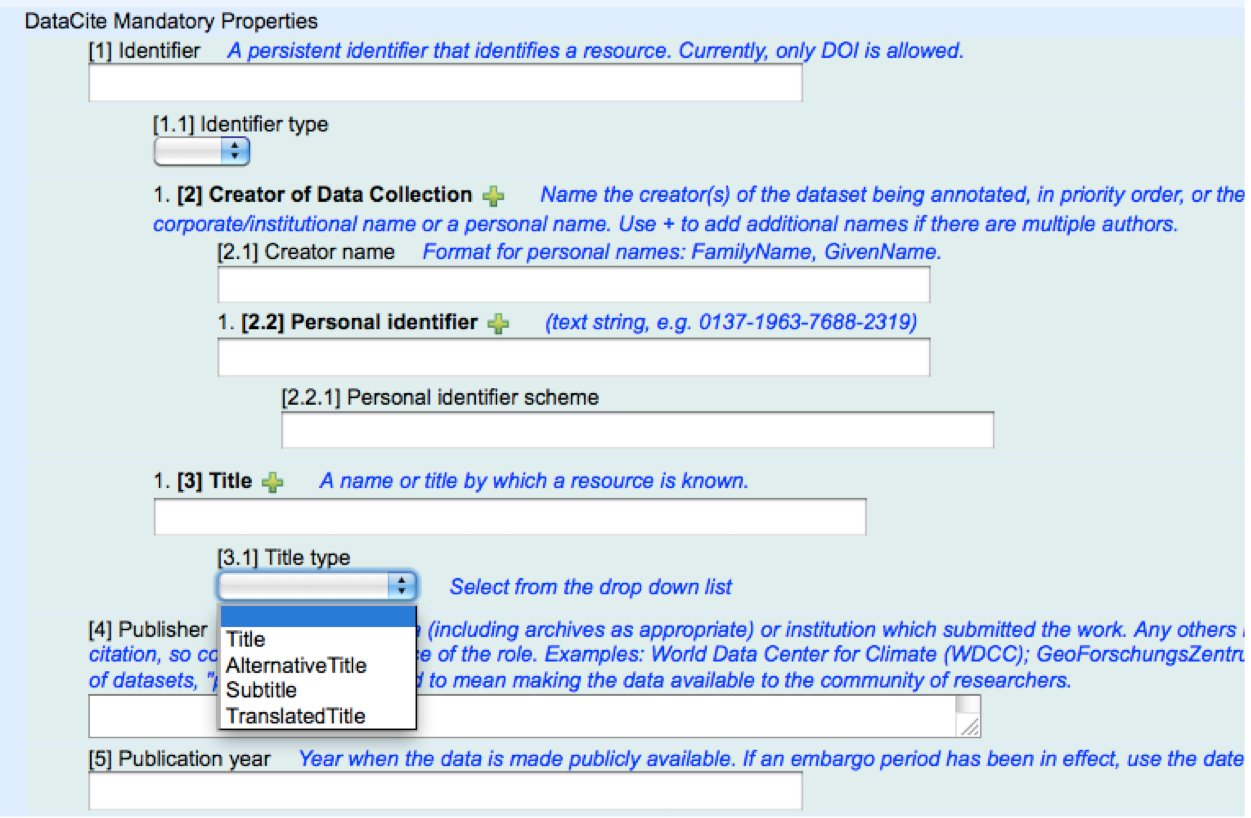
OpenCitations recalls what has achieved over the past year, in terms of technical developments, community building, and internal organization.

OpenCitations recalls what has achieved over the past year, in terms of technical developments, community building, and internal organization.

Yesterday I gave a lightning talk at the 2021 OASPA Conference, with the title OpenCitations – what does the future hold? The poster accompanying my talk, published on Zenodo at https://doi.org/10.5281/zenodo.5526713, is reproduced below. Here is what I said: = = = Most of the talks at this conference have focussed on open access to textual content.

DataCite is an international organization responsible for the DOIs (Digital Object Identifiers) issued for research datasets. For each DOI issued, DataCite requires the data publisher to create and submit to DataCite descriptive metadata that can aid resource discovery.
The purpose of mapping DataCite metadata elements to ontology terms is to enable DataCite metadata to be published in RDF as Open Linked Data, enabling these metadata to be understood programmatically and integrated automatically with similar data from elsewhere.
Given the renewed interest among publishers in the Open Citations Corpus, following the decisions by Nature Publishing Group, publisher of Nature , and by the American Association for the Advancement of Science, publisher of Science , to open their citation data for inclusion in the corpus, I thought it would be helpful to provide links to videos of two conference presentations I gave that describe the Open Citations Corpus in
The JISC, in response to its invitation to tender, has recently funded Curtis+Cartwright Consulting Ltd, a research and strategy consultancy, to undertake an independent study entitled Access to Citation Data: A Cost-Benefit and Risk Review and Forward Look . Evidence gathering for the study has just started, and the consultants are due to produce a report on this subject by next February.
Why should the publishers of subscription-access journals, who presently generate income from the sale of access to peer-reviewed full text scholarly articles, be willingly open the reference lists of these articles, and contribute these to the Open Citations Corpus for publication as open linked data? I would like to suggest the following reasons: 1. There is a general move towards open data, which is widely regarded as a common good.
To accompany today’s publication in D-Lib Magazine of the article The Five Stars of Online Journal Articles – a framework for article evaluation highlighted in the previous post, I have today also published The Five Stars Ontology, a simple ontology written in OWL 2 DL that forms part of SPAR, a suite of Semantic Publishing and Referencing Ontologies.
I recently posted a brief description of an article entitled The Five Stars of Journal Articles, pointing to a preprint of this article in Nature Preceedings .
Data copied from JISC Expo DOAP (Description of a Project) spreadsheet at https://spreadsheets.google.com/ccc?key=0ArsNASxXZiL6dC1mWWFMMjRWSmVha0E1WmdlQ05KcEE&hl=en#gid=7. Project title : The Open Citations Project Project tag : jiscopencite Short project description We will publish reference lists from Open Access biomedical journal articles as Linked Open Citation Data at